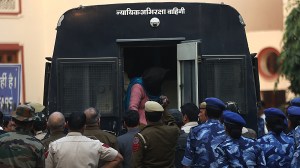Prime Minister Narendra Modi on Wednesday asked the Chief Ministers of seven states worst hit by the Covid-19 crisis to make a critical assessment of the 1-2-day lockdowns that several states have been imposing, and the adverse impact these have on economic activity.
The Prime Minister stressed on the need for states to strengthen their tracing- tracking strategy to contain the spread of the novel coronavirus infection.

“The lockdown brought benefits. Globally too, it has been appreciated. However, now we have to focus on micro containment zones, which will ensure that the spread is contained… States have to make an assessment on how effective are the lockdowns that are being imposed for 1-2 days. Because of this, economic activity should not face problems. My suggestion to the states is to take up this issue very seriously. We have to increase our focus on effective testing, treating and surveillance, and clear messaging,” the Prime Minister said.
The Prime Minister’s video conference was attended by the Chief Ministers of Maharashtra, Andhra Pradesh, Karnataka, Uttar Pradesh, Tamil Nadu, Delhi, and Punjab. More than 63 per cent of the country’s active Covid-19 cases are in these states, which also account for 65.5% of the total confirmed cases, and 77% of deaths.
Modi also took up with the states the problems seen in the supply of oxygen to patients in recent weeks.
“…Another thing that has emerged is that the interruption in the movement of services and goods from one state to another causes unnecessary problems to ordinary citizens; it also impacts lives and livelihoods. Of late, many states have had problems regarding the supply of oxygen. Every necessary step has to be taken to ensure that there is uninterrupted supply of life-saving oxygen,” he said.
The Prime Minister asked the Chief Ministers to hold daily virtual meetings with officials at the levels of districts and blocks so that a clear message on containment percolates to the ground level.
Story continues below this ad
“We have more than 700 districts,” he said. “But the statistics that are worrying are from just 60 districts and confined to seven states… The CMs can make a 7-day programme; and every day for one hour, you should virtually question one block or tehsil in the district, which will ensure that the message goes down to the ground level, and brings seriousness and sincerity.”
The government, Modi said, had decided to enhance the utilisation of the State Disaster Response Fund (SDRF) to 50 per cent for improving Covid-19 infrastructure.
“We need to continue strengthening infrastructure; we also have to strengthen training on tracking and tracing. Today, to strengthen the Covid-19 infrastructure, an important decision has been taken on State Disaster Response Funds. Following requests from many states, we have increased the utilisation of SDRF from 35 per cent to 50 per cent. This decision will result in more funds becoming available for the state,” he said.
The Prime Minister asked the seven CMs to adopt the best practices from other states. “The country now has the highest testing and recoveries. Many states have exhibited several best practices. We have learned more from these practices, and taken advantage of them. The progress made in clinical management over the last few months is helping us a lot in fighting the pandemic,” he said.
Story continues below this ad
At the beginning of the meeting, Modi expressed his appreciation for the doctors who have been treating patients under the flagship Ayushman Bharat scheme, which completed two years on Wednesday. “In just two years, more than 1.25 crore poor patients have received free treatment under this scheme. Today, through this video conference, I express my special appreciation to all the doctors and medical staff serving the poor,” he said.









